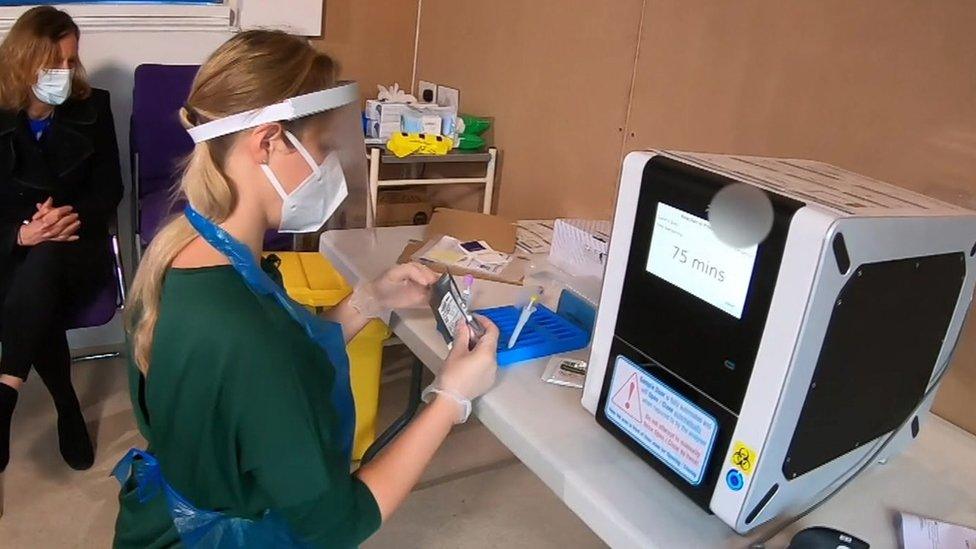Care home manager: 'It felt like we were losing our own family'
- Published
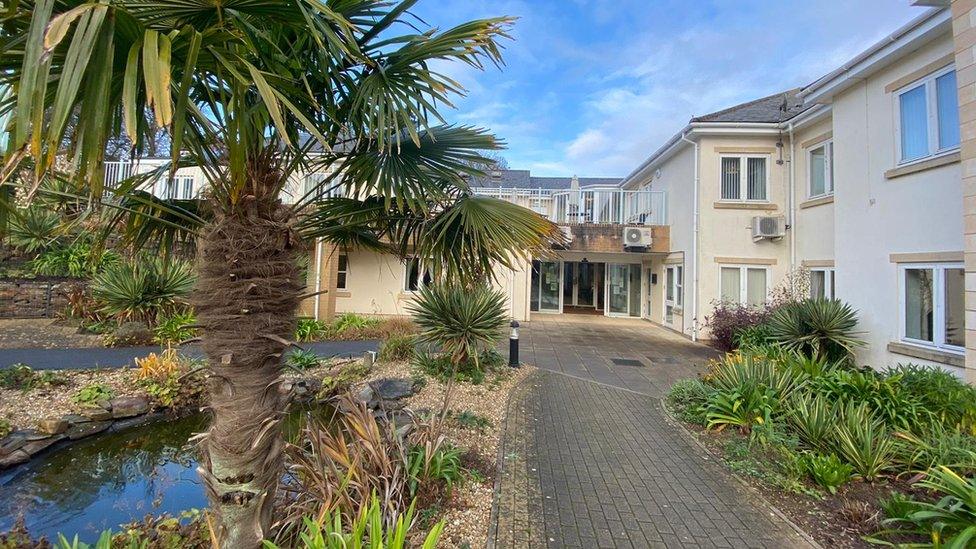
More than a third of residents died at the Roseland Court care home at the height of the coronavirus crisis.
During the spring, at the height of the Covid-19 crisis, Roseland Court care home in Cornwall lost more than a third of its residents to the virus.
The first diagnosis at the 36-bed home in Tregony near Truro was on 30 March and coronavirus tore through the home over the next few weeks.
Staffing levels were down by 50%, with some of the carers not going home to their own families for more than two months.
In the summer, garden visits were introduced for family members and now, with rapid testing on site, residents can finally touch and hug their loved ones again.
It has been a tumultuous nine months, but they are now looking forward to Christmas.
Here are three perspectives from those closest to the home, which has won a Care Heroes Award, external for its work during the pandemic.
The manager
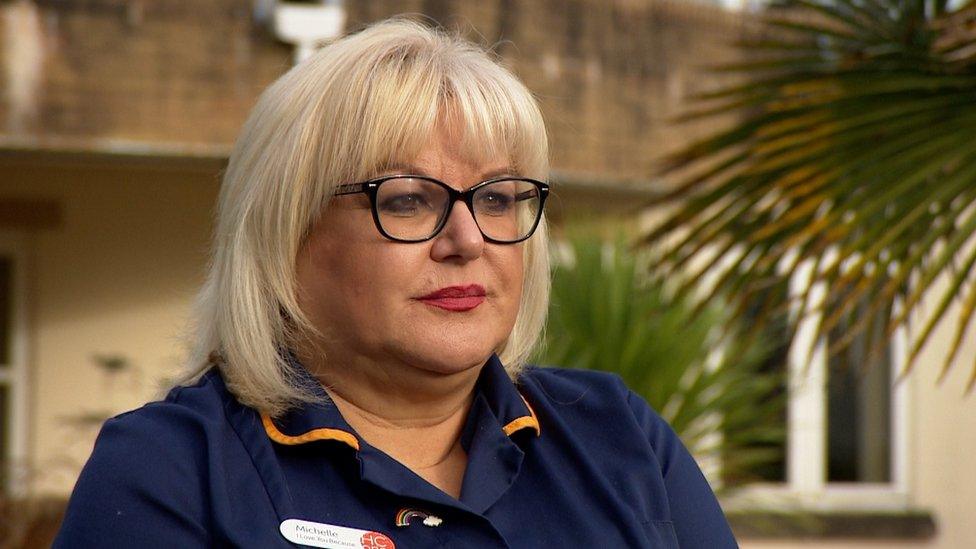
Michelle Wray said the dedication of staff has 'blown her away'
"We were all frightened at the beginning. We didn't know quite what we were dealing with", Michelle Wray, the registered manager of Roseland Court, said.
Mrs Wray called the virus the "invisible enemy".
"We didn't know how it was coming in, or how it was spreading," she said.
"I can't even put it into words how it felt at that time. It felt like we were losing our own family one by one.
"As the staff we just held on to each other. Lots of tears, lots of laughter and just knowing that we were doing the best that we could just kept us all going through."
'Quite horrific'
The emotional strain was "the toughest" when, at the end of a resident's life, staff had to make "goodbye calls" to families unable to visit.
"It got really really bad in the fact that it was not just one person we lost a day. And to deal with one person passing and the emotions that invokes - to do that two or three times in one day was quite horrific."
Some staff lived at the care home for up to two months without seeing their own families because they had a vulnerable relative at home.
"The distress that they coped with, the dealing with loved ones. They are the ones who have blown me away with their absolute dedication," said Mrs Wray.
The home is now using lateral flow testing for visitors, which means there "is the light at the end of the tunnel now".
"We have surprised several of the residents with visits from their loved ones. So the last few weeks there hasn't been a dry eye in the house, but all happy tears now."
The carer
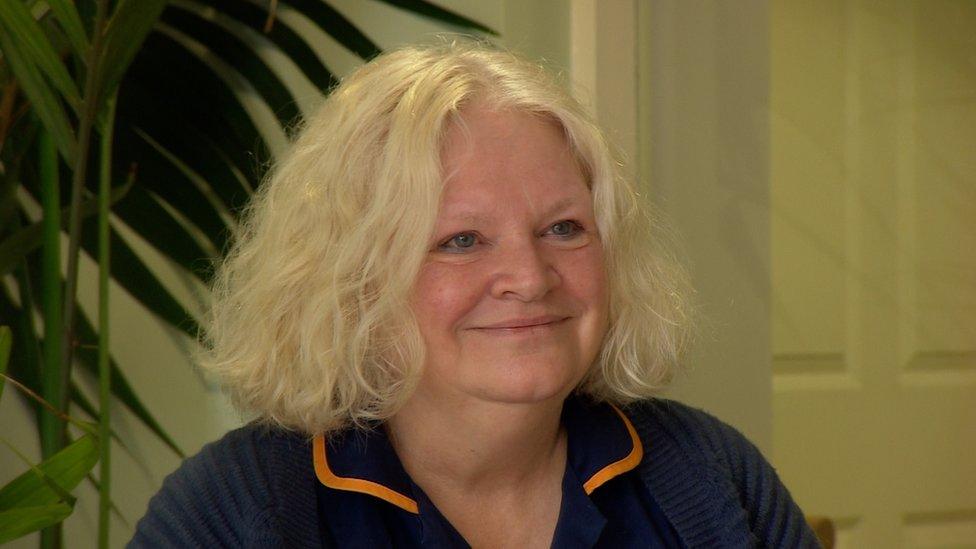
Julie Barton said it was a 'privilege' to be with residents at the end of their lives
Clinical lead Julie Barton said some of those she cared for have been confused and angry at times during the last nine months, especially in the early stages of the pandemic.
"They were angry that their loved ones couldn't be with them at the most important time of their life, which was the end of their life," she said.
Mrs Barton was with several residents as they died.
She said: "I felt privileged as we always do when we are with somebody at that moment, when they are at the end of their life."
She is now working on making the most of the festive season for those at the home, and says the recent visits from family members have been "truly wonderful".
The families
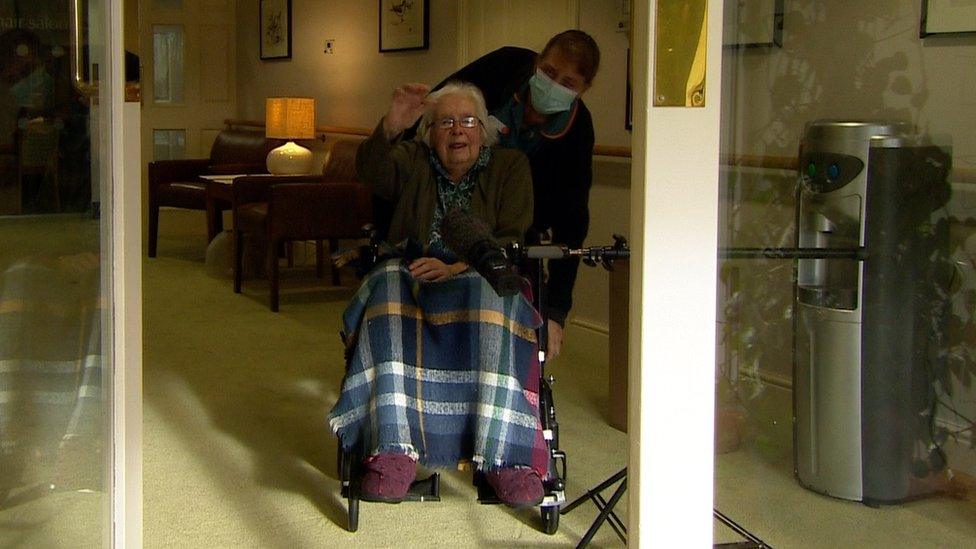
Jean Biddick has now been hugged by loved ones for the first time since March
One resident, Jean Biddick, 93 had not seen any of her three children since February until a recent visit.
She said: "I missed my children. They phone every day but I missed them. I couldn't believe it when my daughter walked in yesterday, because I didn't know nothing about it."
Katie Wood's mother moved into Roseland Court in February and was not allowed any visitors for the first few months.
In the summer, some outdoor visits were arranged with screens and social distancing in place, and now the home is allowing visitors to have direct contact with their loved ones, as long as they test negative for Covid on arrival at the home.
She said: "I was one of the first people that was able to come in and see her which was very emotional but it was very lovely too.
"It's just that contact and being able to touch. To get up close to them and give them a hug."
Related topics
- Published3 July 2020
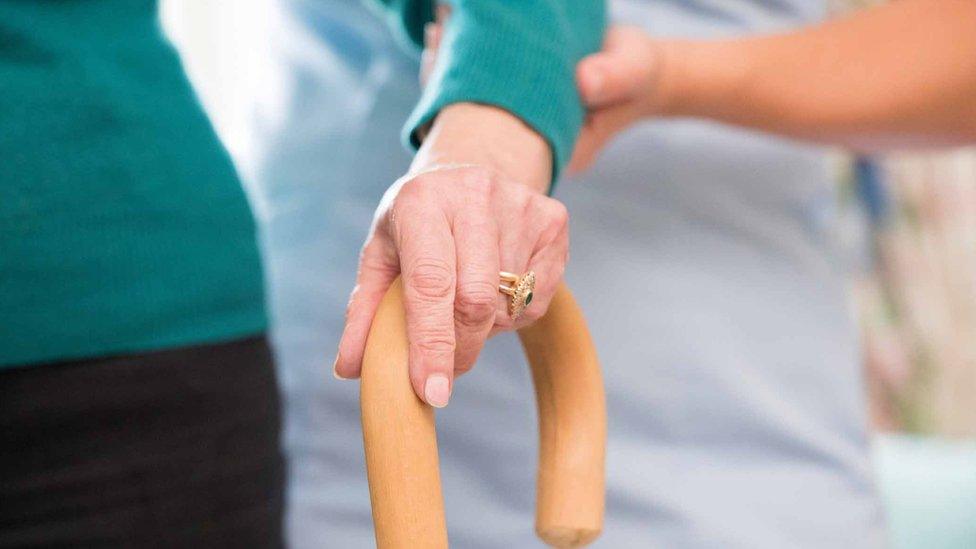
- Published16 November 2020
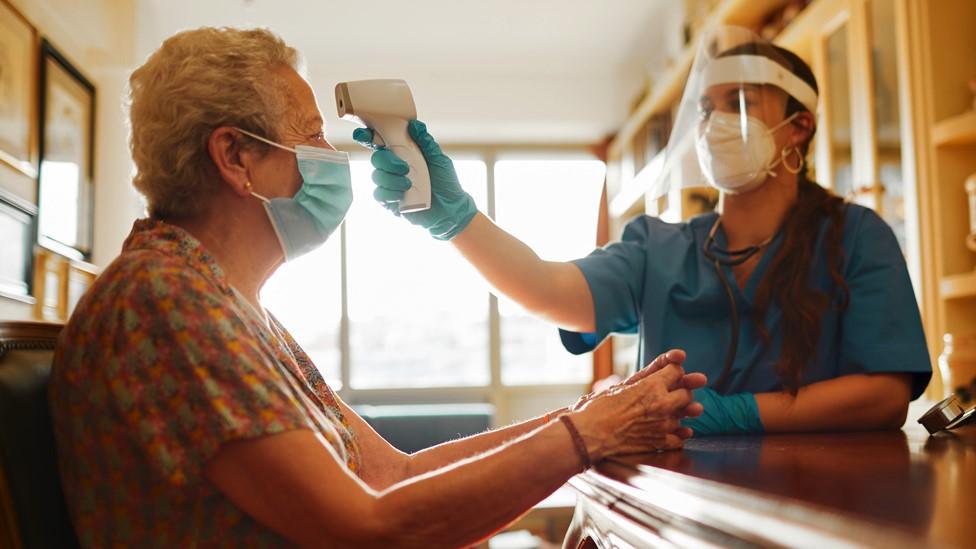
- Published1 December 2020
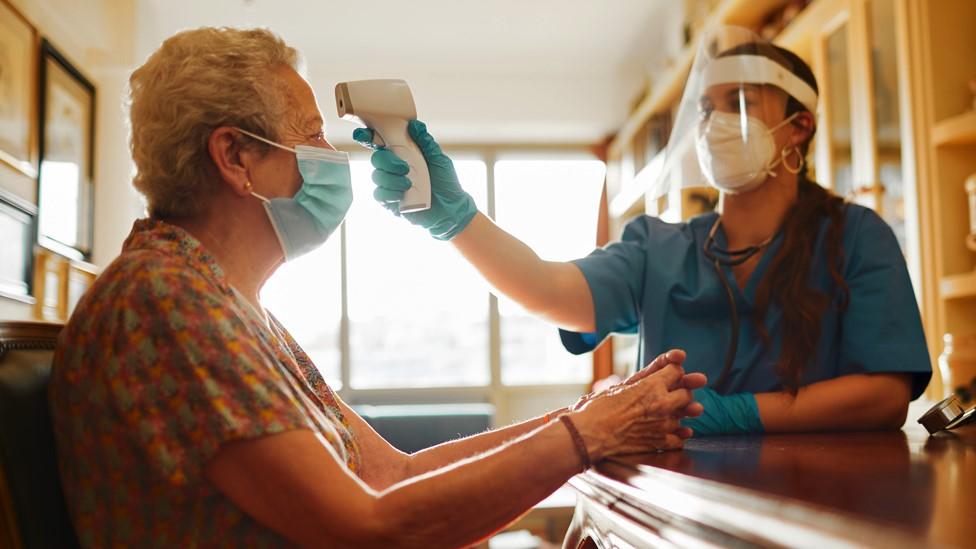
- Published12 November 2020
